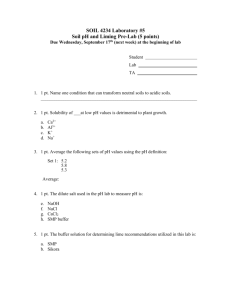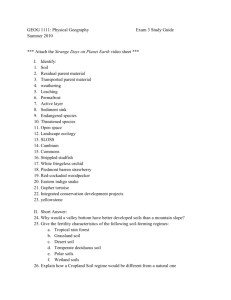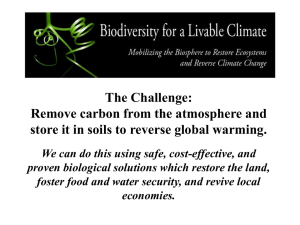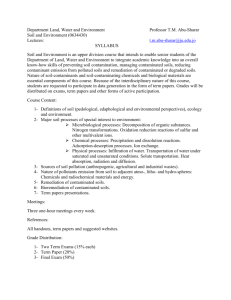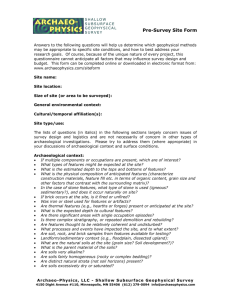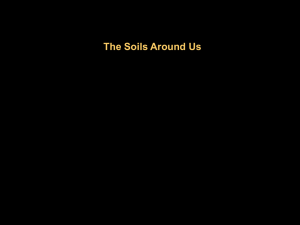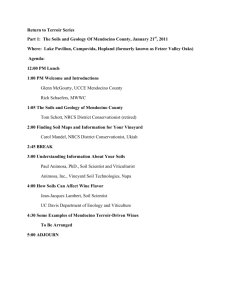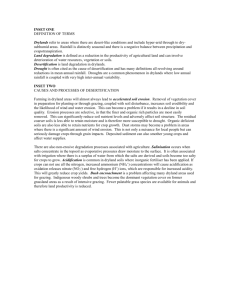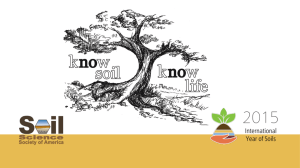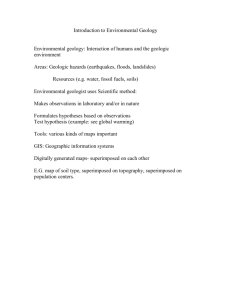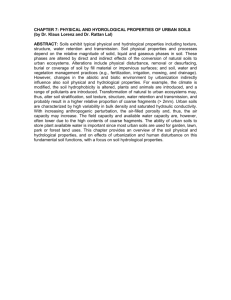Carbon Sequestration in Soils
advertisement
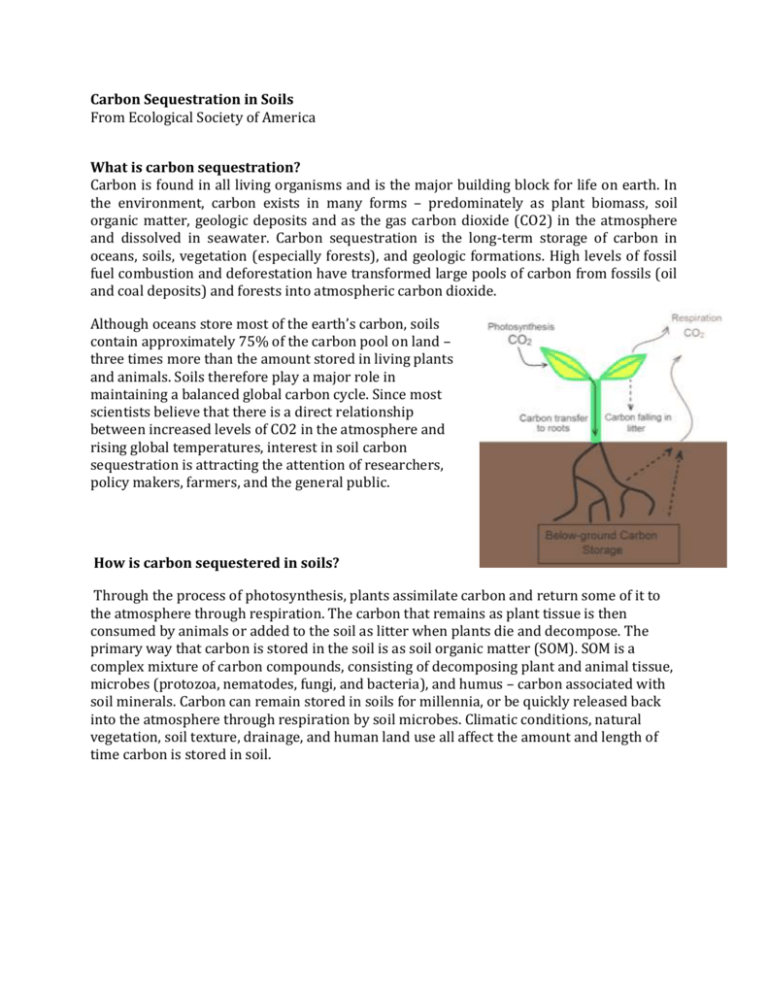
Carbon Sequestration in Soils From Ecological Society of America What is carbon sequestration? Carbon is found in all living organisms and is the major building block for life on earth. In the environment, carbon exists in many forms – predominately as plant biomass, soil organic matter, geologic deposits and as the gas carbon dioxide (CO2) in the atmosphere and dissolved in seawater. Carbon sequestration is the long-term storage of carbon in oceans, soils, vegetation (especially forests), and geologic formations. High levels of fossil fuel combustion and deforestation have transformed large pools of carbon from fossils (oil and coal deposits) and forests into atmospheric carbon dioxide. Although oceans store most of the earth’s carbon, soils contain approximately 75% of the carbon pool on land – three times more than the amount stored in living plants and animals. Soils therefore play a major role in maintaining a balanced global carbon cycle. Since most scientists believe that there is a direct relationship between increased levels of CO2 in the atmosphere and rising global temperatures, interest in soil carbon sequestration is attracting the attention of researchers, policy makers, farmers, and the general public. How is carbon sequestered in soils? Through the process of photosynthesis, plants assimilate carbon and return some of it to the atmosphere through respiration. The carbon that remains as plant tissue is then consumed by animals or added to the soil as litter when plants die and decompose. The primary way that carbon is stored in the soil is as soil organic matter (SOM). SOM is a complex mixture of carbon compounds, consisting of decomposing plant and animal tissue, microbes (protozoa, nematodes, fungi, and bacteria), and humus – carbon associated with soil minerals. Carbon can remain stored in soils for millennia, or be quickly released back into the atmosphere through respiration by soil microbes. Climatic conditions, natural vegetation, soil texture, drainage, and human land use all affect the amount and length of time carbon is stored in soil.
